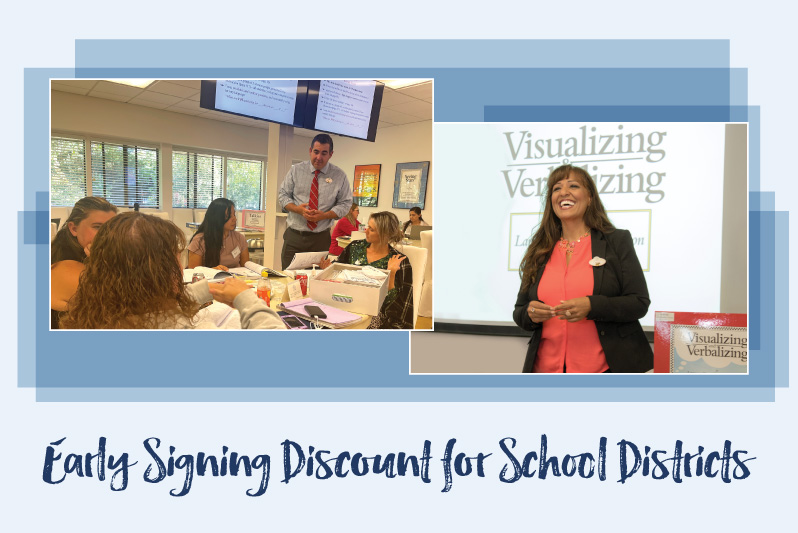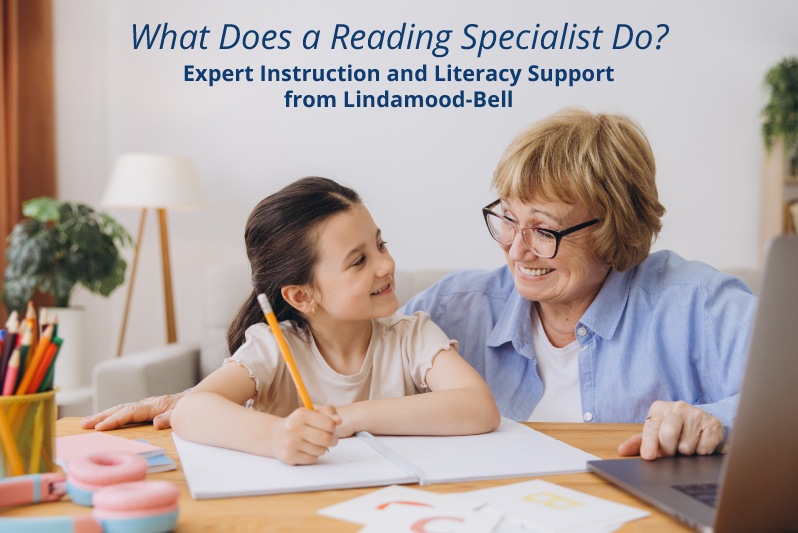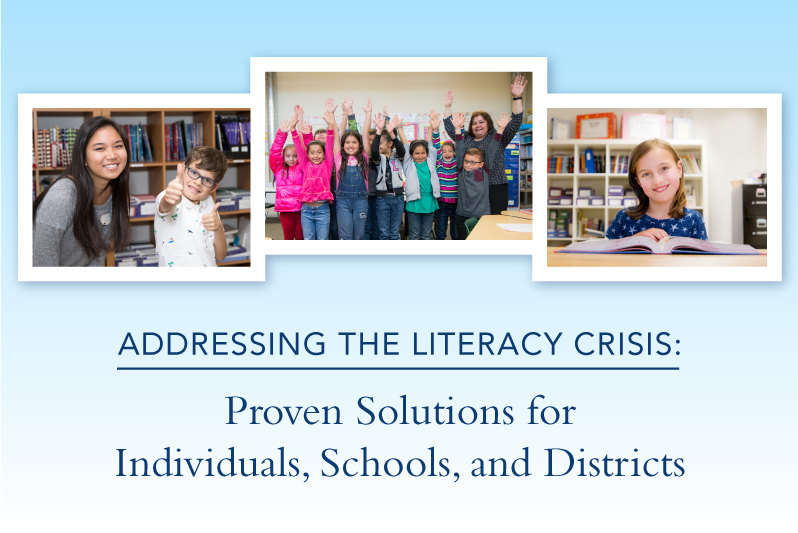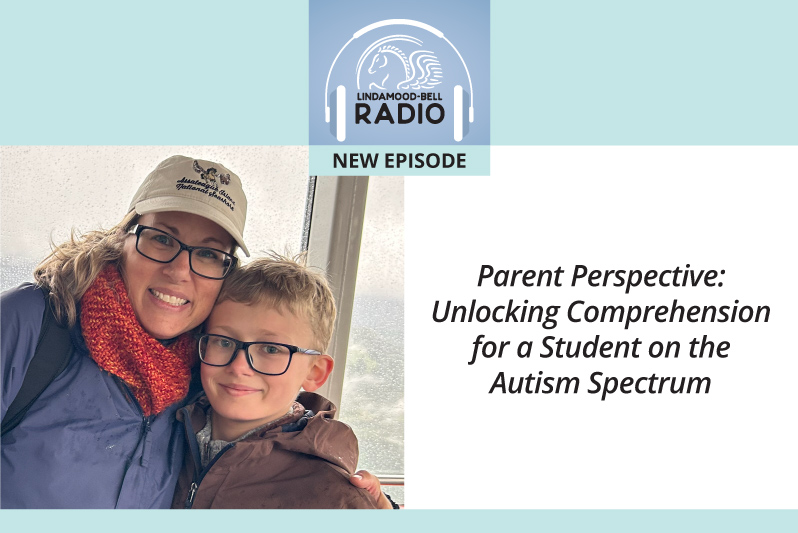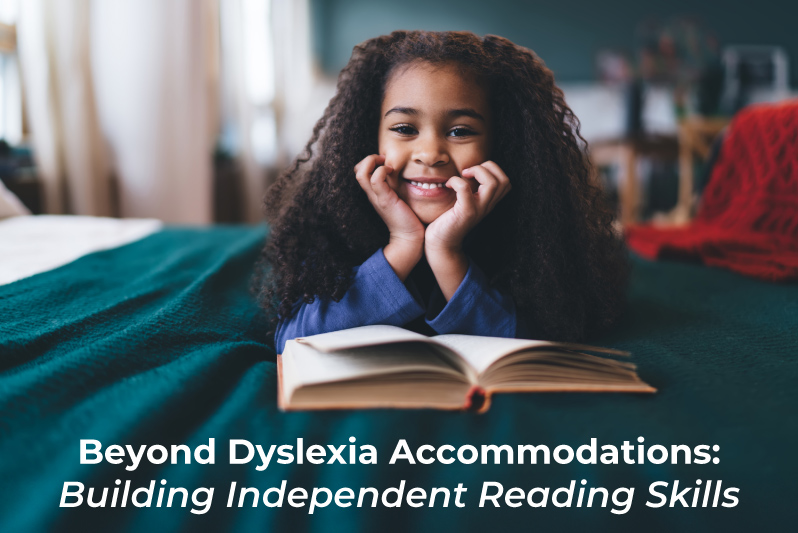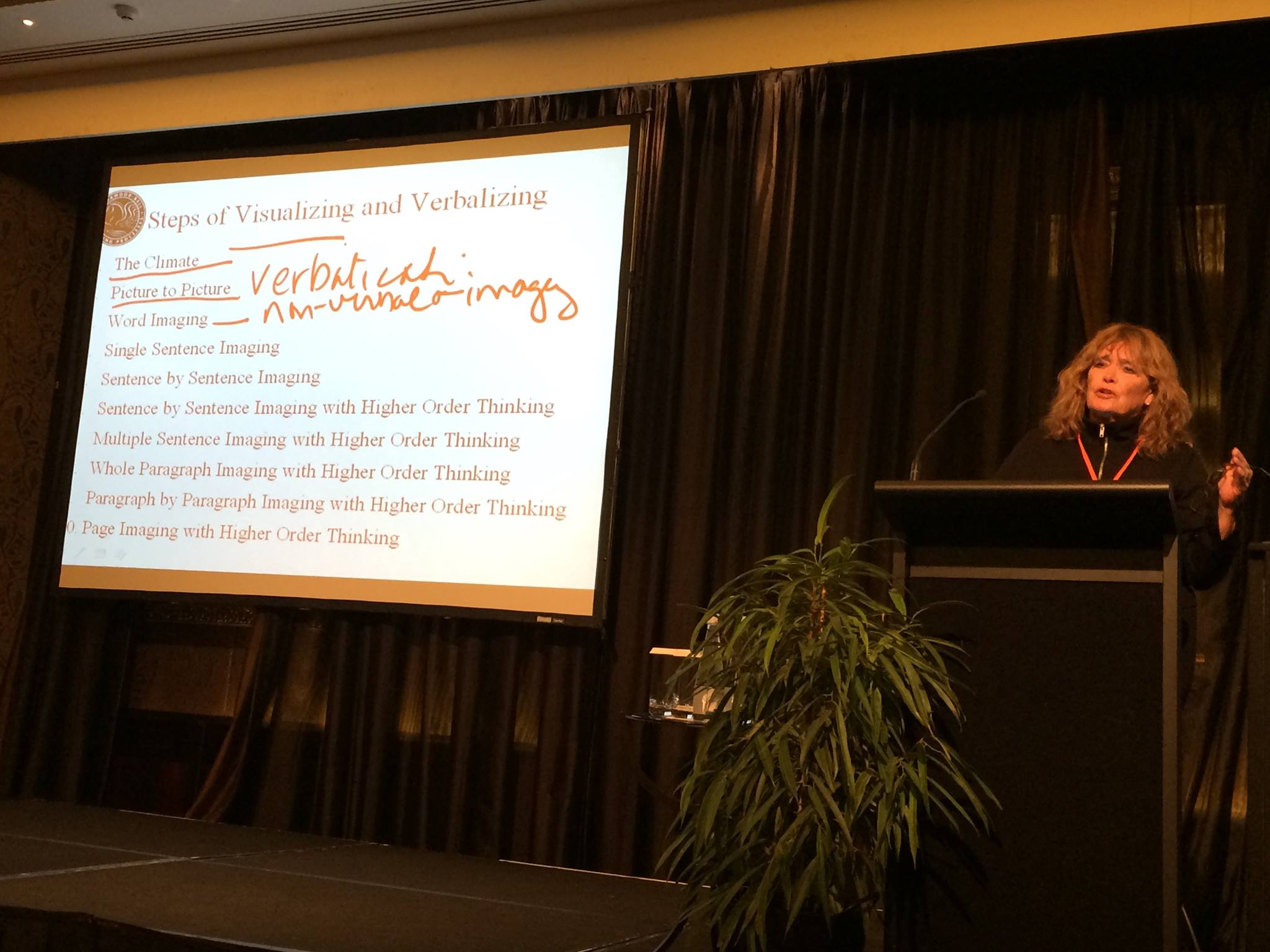Training in Literacy Interventions from an Industry Leader
Planning professional development for your district? Lindamood-Bell makes it easy to secure high-impact training now and schedule it later—while taking advantage of early-signing savings. For a limited time, districts can save 20% per attendee when signing a contract by March 15. (minimum 10 participants) Workshops can be scheduled anytime through December 18, 2026. Professional development…
What Does a Reading Specialist Do? Expert Instruction and Literacy Support from Lindamood-Bell
What Is a Reading Specialist? When parents search for a reading specialist, they often seek expert support to help a child improve their reading accuracy, understanding, and confidence. They look for a professional who understands how children learn to read and applies this expertise when progress has slowed or challenges persist. In school settings, reading…
Addressing the Literacy Crisis: Proven Solutions for Individuals, Schools, and Districts
The latest National Assessment of Educational Progress (NAEP) scores confirm an alarming reality: reading proficiency among American students continues to decline. According to the National Center for Education Statistics, the average reading score for fourth graders in 2024 dropped two points from 2022 and five points from 2019, highlighting an urgent need for effective interventions….
Unlocking Comprehension for a Student on the Autism Spectrum | Lindamood-Bell Radio
April shares her son’s journey at a Lindamood-Bell Learning Center. Her son is on the autism spectrum and, while he was a strong decoder, reading comprehension remained a challenge. Through Visualizing and Verbalizing instruction, his comprehension scores soared, and he is now making substantial progress in math. Discover how personalized, sensory-cognitive instruction helped him gain…
Beyond Dyslexia Accommodations: Building Independent Reading Skills
Students with dyslexia face challenges in reading and spelling that can make learning frustrating and affect confidence. Dyslexia accommodations are tools that may allow learners to access grade-level content while their skills develop. These accommodations can reduce barriers, support engagement, and help students demonstrate their knowledge. Students may be enrolled in a public or private…
Bridging the Gap: How Lindamood-Bell Supports At-Promise and Opportunity Youth Through Literacy and Imagery
At Lindamood-Bell, we believe that every student can learn to their potential—especially those who have been historically underserved, overlooked, or underestimated. Across the country, we are working alongside educators, juvenile justice programs, and workforce development initiatives to change the trajectory for at-promise and opportunity youth by closing one of the most critical barriers to equity:…
What is Aphantasia?
Understanding Aphantasia Aphantasia is a condition in which an individual cannot form or has difficulty forming visual images in their mind. It is thought to affect an estimated 2-5% of the population. Though not widely recognized, understanding this phenomenon is helpful for educators, parents, and individuals. Termed by Professor Adam Zeman in 2015, aphantasia…
Upcoming Conferences and Presentations
Online Professional Development Opportunity from the Urban Special Education Leadership Collaborative Date: February 26, 2026, at 9 a.m. Location: Virtual Presentation: Building a System for Secondary Reading Intervention: Lessons from Sweetwater Union High School District Presenters: Dave Kiyvyra, Director of Development for Lindamood-Bell For Schools, and Michelle Sturm-Gonzalez, Special Education Director of Sweetwater Union High…
Join the celebration! Academy Week starts January 12
Experience Lindamood-Bell Academy firsthand. Join us January 12-16 for Academy Week at our Learning Centers! When Teagan began avoiding reading, her confidence faded along with her progress. After enrolling in Lindamood-Bell Academy, everything changed. Today, she’s keeping up at school—and her love of learning is back. Watch Teagan’s mom talk about her transformation. James…
What Is Dual Coding Theory? Strengthening Reading and Comprehension
At Lindamood-Bell, our approach is grounded in Dual Coding Theory (DCT), a cognitive framework that demonstrates how the brain processes information. Developed by cognitive psychologist Allan Paivio, DCT posits that humans have both verbal and nonverbal systems for processing information. Verbal: Words, symbols, letters, phonemes, grammar, definitions, and mathematical notation. Nonverbal: Mental images, scenes,…





